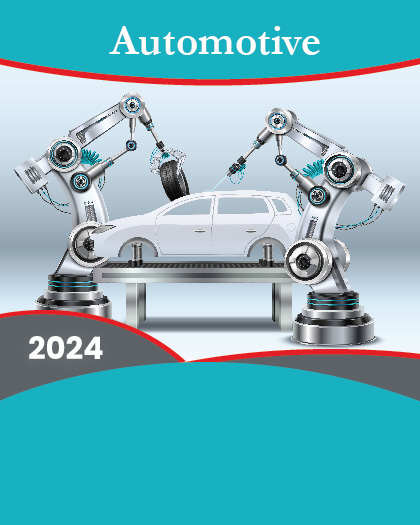
According to a recent report published by Allied Market Research, titled,"Automotive Seat Market by Trim Material Type, Seat Type, Vehicle Energy Source, and Vehicle Type: Global Opportunity Analysis and Industry Forecast, 2018 - 2025,"the automotive seat market size was valued at $71,651.20 million in 2017, and is projected to reach $101,397.20 million by 2025, registering a CAGR of 4.3% from 2018 to 2025. The gasoline vehicle energy source type segment was the highest contributor to the market in 2017, accounting for $56,828.9 million, and is estimated to reach $72,226.0 million by 2025, registering a CAGR of 2.9% during the forecast period. In 2017, the automotive seat market share has accounted highest for the Asia-Pacific region.
At present, Asia-Pacific dominates the market, followed by Europe, North America, and LAMEA. China dominated the automotive seat market in 2017, whereas India is expected to grow at a significant rate during the forecast period.
The automotive environment is changing at a rapid pace due to globalization. Therefore, increase in automotive sales due to improvement in manufacturing facilities in most of the emerging countries such as China, India, and Brazil is a key factor that drive the demand for automotive seats. Improvement in productivity of automotive seats in the automotive sector is anticipated to influence prominent players to invest and expand the business through different segments such as electric and internal combustion engine. In addition, increase in disposable income of consumers and surge in passenger vehicles sale across the globe fuel the demand for automotive vehicles, which in turn is expected to boost the growth of the automotive seat market.
Developing countries such as India, China, and Brazil are the most promising countries for the automotive sector, owing to increase in sales of electric vehicles. Furthermore, increase in awareness about the latest technology used in automotive and rise in deployment of automotive seat in automobiles from the giant companies are expected to fueling the growth of the market. The automotive seat market trends are decided on the basis of forecast from 2018 to 2025. In recent years, consumers have shifted their interest toward technologically advanced, autonomous seating that have number of applications. This in turn increases the overall use of automotive seat components in vehicles, thereby boosting the automotive seat market growth.
Furthermore, rise in sales of luxurious vehicles in developing countries, increase in need for climate-controlled seat technology, and surge in need for lightweight seat frame are the key factors that fuel the growth of the automotive seat industry. In addition, autonomous seating and development of the automobile industry have fueled the production of automotive seat market. In addition, technological steps taken by firms to focus on child seating and improved comfort, new materials, and cost-saving innovations boost the demand for automotive seat in the global market.
Volatility in the prices of metal and slow-down in the sales and production of automobiles are the major restraining factors of the automotive seat market. Furthermore, rise in demand of animal products free vehicles, and growing popularity of autonomous vehicles are anticipated to offer lucrative opportunities for the market expansion.
The automotive seat market analysis totally depends on the trim material and seat type used for the construction of automotive seat. Moreover, automobile companies focus on the innovations of automotive seat system. Furthermore, Adient is working on new safety solutions for the seats of future generation vehicles such as alternative seating layouts in autonomously driven vehicles. Faurecia presented its "Active Wellness Express," the first seat cover for professional drivers with premium car comfort and wellness features. It is one of the first seat cover which uses sensors to monitor health and wellness data such as heart rate and respiratory rate. Therefore, the new product will improve safety, comfort, and well-being of drivers. These factors will not only boost the growth of automotive seat market but also the demand for component needed to assemble seat.
Moreover, the leading giant companies in automotive seat industry are taking steps to expand their business through various business strategies. For instance, Gentherm partners with ThermoAnalytics to advance human thermal comfort predictions. The advanced software capability will enable Gentherm to improve the personalized thermal comfort experience provided through the Company's Climate Control Seat and future ClimateSense solutions. One of the major factors that driving the automotive seat market share is rising sales of passenger, electric & commercial typed vehicles across the globe.
In addition, Toyota Boshoku Corporation and Tachi-s Co., Ltd. concluded a business partnership contract. Both Toyota Boshoku and TACHI-S are striving to enhance their respective competitiveness in the automobile seat market by undertaking future-oriented research and development and promoting manufacturing innovation. The automotive seat market forecasted from year 2018-2025 by considering all the driving factors that influence equally to the market analysis.
However, Adient collaborate with Autoliv, Inc., the worldwide leader in automotive safety systems, to address vehicle seating challenges presented by designs for the future car and the incorporation of autonomous driving. Such initiatives from various leading player in automotive seat market are creating opportunities for the market growth.
Key Findings of the Automotive Seat Market:
In 2017, based on seat type, the bucket seat segment generated the highest revenue.
In 2017, by vehicle type, the passenger type was the highest revenue contributor.
In 2017, by vehicle energy source, the gasoline segment was the highest revenue contributor.
In 2017, region wise, Asia-Pacific contributed the highest revenue, followed by Europe, North America, and LAMEA.
The key players analyzed in this report include Adient plc, Aisin Seiki Co., Ltd, Faurecia, GENTHERM, Lear Corporation, Magna International Inc, NHK SPRING Co., Ltd., Tachi-s Co, Ltd., Toyota Boshoku Corporation, and TS Tech Co., Ltd.
























